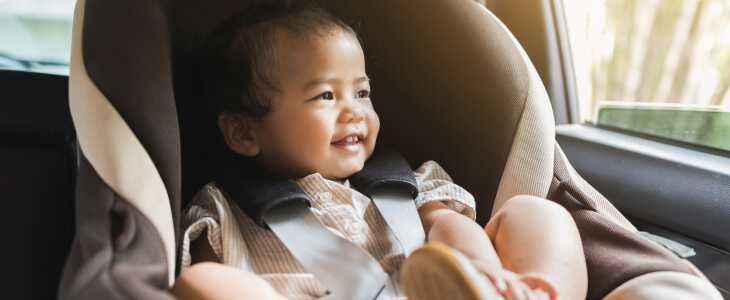Car seats play an essential role in keeping young children safe when driving, as standard seat belts may not offer enough protection in a crash or could hurt a child due to their smaller size. Therefore, it’s crucial for parents to make sure a child’s car seat is safe and watch out for product recalls.
Sadly, companies recall car seats with alarming frequency. In March 2023, the National Highway Traffic Safety Administration (NHTSA) recalled almost 60,000 car seats from the brands Maxi Cosi and Safety 1st. The NHTSA said the anchor components used to secure the seats could fail and allow the car seat to detach in a crash, potentially causing catastrophic injuries. And in May 2023, General Motors (GM) recalled over 650,000 SUVs because one of the components used to attach a car seat to the vehicles could fail and prevent the seat from being attached correctly.
The Philadelphia product liability lawyers at Cooper, Schall & Levy want every parent to have the information they need to keep their kids safe when driving. This blog provides helpful tips on car seat recalls and how to check your child’s car seat to make sure it’s safe.
Car Seat Safety Tips
Here are a few essential car seat safety tips for Philadelphia parents:
- Never buy a used car seat. You don’t know where the seat came from or what it’s been through. New seats may be more expensive, but you know what you’re getting.
- Always get a new car seat after an accident, even if the seat appears undamaged. You might not be able to see damage to internal components that could fail catastrophically in a crash.
- Make sure the car seat meets federal safety standards. All car seats should have a sticker certifying that the device meets NHTSA safety regulations.
- Make sure your child uses the correct car seat for their age and size. In general, children ages one to three should use a rear-facing seat, while children ages three and up can use front-facing seats. Children ages seven and onward can use booster seats if they exceed the weight or height limits for front-facing car seats.
- Have a professional inspect your car seat to make sure it’s safe. There are many agencies that offer child seat safety inspections for free. These professionals can evaluate a car seat and look at all its components to make sure it’s safe to use.
- Always follow manufacturer guidelines and instructions when installing a car seat. These devices only work correctly when installed properly, so make sure to read the instructions carefully.
- Periodically check for car seat recalls. You can check the NHTSA’s website for information on the most recent car seat recalls. If you see your model on the list, get a new one immediately. In most cases, manufacturers of recalled car seats will offer a free replacement.
What to Do If Your Child’s Car Seat Fails in a Crash
Once you have sought medical attention for yourself and your child after a crash, it’s vital to take steps to protect your legal rights. Here’s what to do in these situations:
- Don’t throw the car seat away. It’s a crucial piece of physical evidence, and experts can examine the car seat to pinpoint what went wrong and who’s to blame.
- Save any other evidence you have from the crash scene. This includes photos or videos, eyewitness contact information, etc.
- Get a copy of the police report. If the police responded to the crash, get a copy of the accident report or ask a lawyer to obtain it for you.
- Do not post about the accident on social media. Insurance companies and product manufacturers can use your posts against you.
- Talk to an experienced product liability attorney right away. They can protect your rights and explain your potential legal options.
Contact Our Philadelphia Product Liability Lawyers Now
You have the right to fair compensation if your child’s car seat failed due to a manufacturing or design defect. Call Cooper, Schall & Levy today or complete our contact form for a free consultation.


